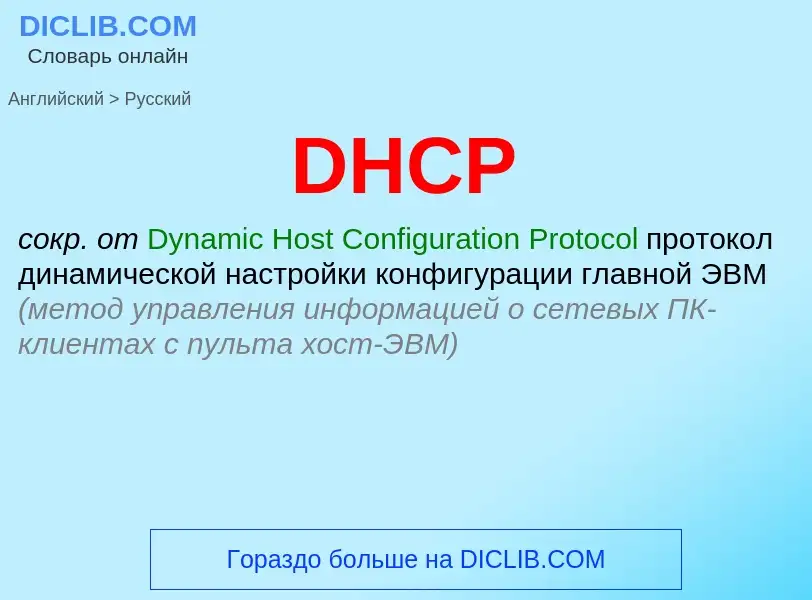Tradução e análise de palavras por inteligência artificial ChatGPT
Nesta página você pode obter uma análise detalhada de uma palavra ou frase, produzida usando a melhor tecnologia de inteligência artificial até o momento:
- como a palavra é usada
- frequência de uso
- é usado com mais frequência na fala oral ou escrita
- opções de tradução de palavras
- exemplos de uso (várias frases com tradução)
- etimologia
DHCP - tradução para russo
общая лексика
Dynamic Host Configuration Protocol
протокол динамического конфигурирования узла [хост-машины], протокол DHCP
протокол, разработанный IETF (см. RFC 1541, RFC 2131) для динамического назначения IP-адресов узлам (рабочим станциям) локальной сети на время их сеанса работы в Интернете, чтобы смягчить проблему нехватки 32-разрядных IP-адресов. Так как присваивание адресов узлам производится из централизованного пула адресов, то гарантируется их уникальность и, как следствие, отсутствие конфликтующих адресов. Реализован на разных платформах (в Windows 9x, Windows NT/2000), является расширением протокола BOOTP
Смотрите также
Wikipédia
The Dynamic Host Configuration Protocol (DHCP) is a network management protocol used on Internet Protocol (IP) networks for automatically assigning IP addresses and other communication parameters to devices connected to the network using a client–server architecture.
The technology eliminates the need for individually configuring network devices manually, and consists of two network components, a centrally installed network DHCP server and client instances of the protocol stack on each computer or device. When connected to the network, and periodically thereafter, a client requests a set of parameters from the server using DHCP.
DHCP can be implemented on networks ranging in size from residential networks to large campus networks and regional ISP networks. Many routers and residential gateways have DHCP server capability. Most residential network routers receive a unique IP address within the ISP network. Within a local network, a DHCP server assigns a local IP address to each device.
DHCP services exist for networks running Internet Protocol version 4 (IPv4), as well as version 6 (IPv6). The IPv6 version of the DHCP protocol is commonly called DHCPv6.

